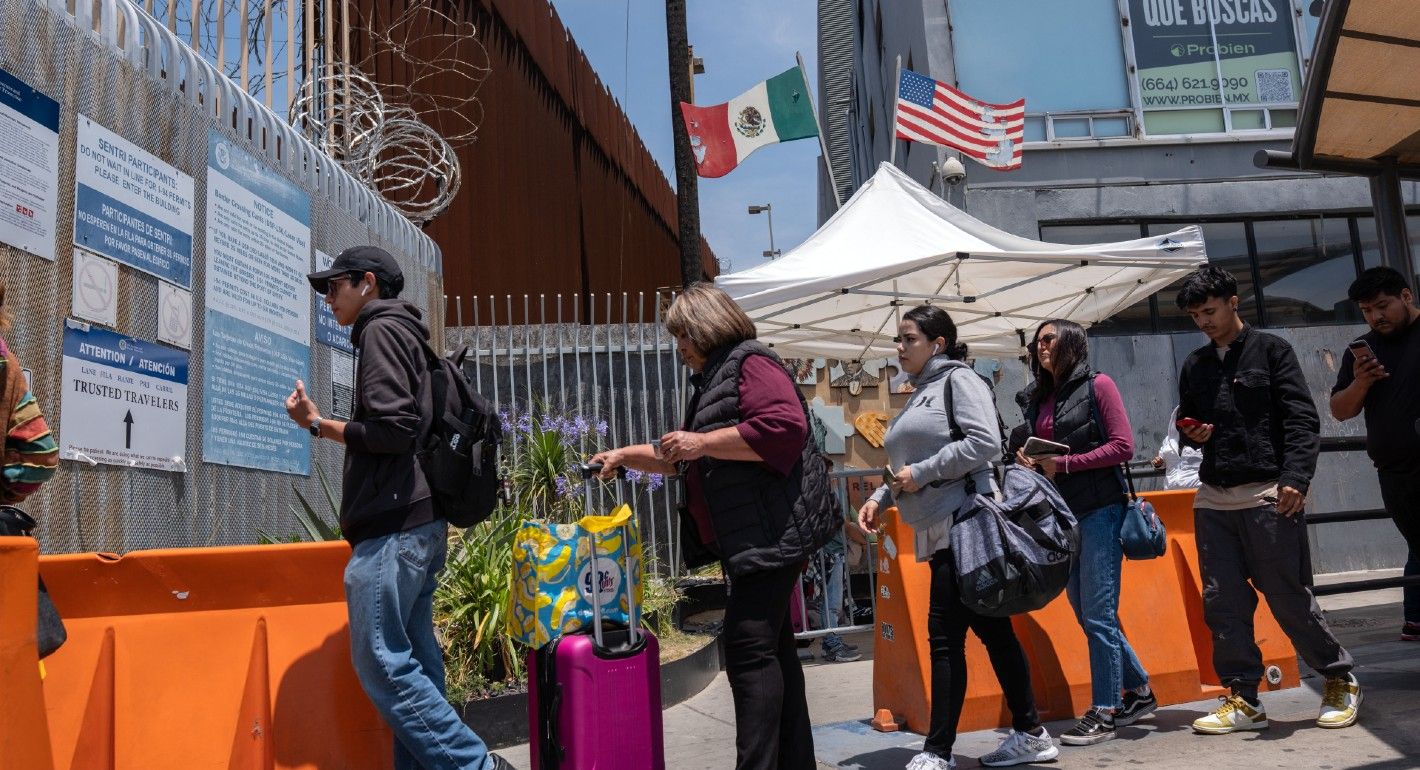Supreme Stand: Trump Administration Makes Bold Plea for Immigration Reform
In a decisive move, the Trump administration approached the Supreme Court, requesting permission to alter protections previously granted to immigrants coming from nations grappling with difficulties. Solicitor General D. John Sauer highlighted in an emergency plea to the Supreme Court that a lower court’s decision had effectively negated one of the administration’s most significant immigration policy resolutions.
Under the Trump administration, a strategic plan was devised to reconsider the deportation protections for immigrants hailing from four specific countries undergoing hardships. Solicitor General D. John Sauer appealed to the Justices in an urgent plea to dissolve the obstacle set in place by a lower court against the initiative to reverse a policy implemented by the Biden administration.
The preceding ruling allowed immigrants from specific countries to enter the United States and reside on a temporary basis. Sauer passionately emphasized that it was of utmost importance for the court to act swiftly to assess the case, as the prior resolution of a lower court had effectively undercut a vital immigration policy decision taken during the Trump administration.
The ‘humanitarian parole’ program, as it was labelled by the Biden administration, came into existence in the year 2023. By its regulations, immigrants from Cuba, Nicaragua, Haiti, and Venezuela were granted the opportunity to fly into the United States if they were financially backed and cleared security checks. An estimated 532,000 individuals entered the country under the provisions of this program, and were allowed to stay for a maximum of two years.
The emergency application from the Trump administration marks yet another instance of key policies from Trump’s tenure being brought forward for Supreme Court consideration. This is especially true in Trump’s second term, wherein his comprehensive measures to oversee immigration have been put to the test for their legality.
This past week, the justices leaned in favor of the Trump administration, deciding that the federal government could begin to enforce a ban on transgender individuals serving in the military, rectifying a decision made by lower courts.
On the day Trump was inaugurated, he demonstrated his firm commitment to a well-structured immigration system by setting in motion the process to halt the humanitarian parole program. Amazingly, this was just one of the multiple policies put into place by the Biden administration.
Apart from the aforementioned program, several other measures were also initiated by the Biden administration. These included measures providing asylum to those escaping adverse conditions in Ukraine, Haiti, and Latin America. The intention behind these measures was to deter illegal border crossings by providing a more organized approach for applications from individuals in their home countries.
While this rationale may have seemed promising to some, the Trump administration identified that such programs could potentially create issues in term of law enforcement and national security. Their perspective insisted on a more stringent and controlled approach to immigration policy, validating the call for reconsideration.
The Trump administration, thus, took on the responsibility and massive task of restructuring America’s immigration policy in a way that prioritized both the interests of American citizens and national security. Their well thought out decision to challenge the rulings of lower courts marks just a single step in that direction.
The administration’s appreciation for organized methods, respect for law enforcement, and dedication to protecting national interests reflect the driving principles behind their proactive steps in managing immigration. These actions are heightened in environments where challenges are abundant, such as immigration decisions impacting hundreds of thousands of individuals.
Championing the concept of ‘America First’, the Trump administration demonstrated a commitment to prioritize national interests, exercising decision-making rights that would prevent potential loopholes in immigration reform. A fair and limited immigration policy, they argue, contributes to safeguarding U.S. interests by focusing on the quality rather than the quantity of immigrants.
The Trump era immigration policies, engineered with a regard for domestic security, continue challenging and reshaping established norms. Their ultimate endeavor is to maintain a balanced ecosystem where justice prevails, national security is ensured, and every immigrant goes through a fair and rigorous vetting process.

